Netherlands
ICC Chief Prosecutor Karim Khan says at presser in The Hague that he wants to "close the situation" in Darfur, when asked whether former South Sudan president Omar al-Bashir would likely soon be in court.
A former Sudanese militia chief oversaw murder, rape and torture across Darfur, the International Criminal Court heard on Tuesday, as the first trial for war crimes in the region got underway.
Ali Muhammad Ali Abd-Al-Rahman, an ally of deposed Sudanese strongman Omar al-Bashir, faces 31 counts of war crimes and crimes against humanity for his role in the conflict almost 20 years ago.
His trial is the first before the Hague-based ICC for crimes in Darfur, in which 300,000 people were killed and two and a half million fled their homes, according to UN figures.
"You will hear evidence that he (Abd-Al-Rahman) and his forces rampaged across different parts of Darfur," the ICC's chief prosecutor Karim Khan told judges.
Abd-Al-Rahman, 72, a senior commander of the Janjaweed militia -- a notorious armed group created by the Sudanese government -- pleaded not guilty after the historic trial opened.
"I reject all these charges. I am innocent of all these charges," Abd-Al-Rahman told judges at the ICC, a court set up in 2002 to try the world's worst crimes.
Wearing a dark blue suit, light blue shirt and fiddling with his maroon tie, Abd-Al-Rahman sat motionless as the 31 counts of war crimes, crimes against humanity allegedly committed in 2003-04 were read. The long charge sheet describes acts of murder, rape, torture and pillaging.
Fighting broke out in Darfur when black African rebels, complaining of systematic discrimination, took up arms against Bashir's Arab-dominated regime. Khartoum responded by unleashing the Janjaweed, a force drawn from among the region's nomadic tribes.
Rights groups described it as a deliberate campaign of ethnic cleansing targeting the Fur, Masalit and Zaghawa ethnic groups.
Voluntary surrender
In April 2007, the ICC issued an arrest warrant for Abd-Al-Rahman, also known by the nom de guerre of Ali Kushayb. He fled to the Central African Republic in February 2020 when the new Sudanese government announced its intention to cooperate with the ICC investigation.
Four months later, he surrendered voluntarily. Abd-Al-Rahman's trial is the first-ever stemming from a UN Security Council referral.
Former president Omar al-Bashir and three others are still being sought by the ICC for crimes in Darfur. Following his ouster in 2019, Bashir remains in Sudan despite calls for him and two other associates to be handed over to the ICC for prosecution.
Asked about efforts to get Bashir to The Hague to stand trial, Khan said negotiations with Khartoum's military government continued, but "cooperation is challenging".
"The situation has improved, but I would really like to close this situation," Khan said.
"But I can't do that unless we move forward... and it will be made much easier with an ever... deeper cooperation with the government of Sudan."
'Feared reputation'
Prosecutors said Abd-Al-Rahman, who carried the title of "colonel of colonels" in the Janjaweed, played a central role in a series of attacks on at least four villages in West Darfur.
He is charged with both directing attacks, as well as mobilising, recruiting, arming and supplying to Janjaweed militia under his command.
Abd-Al-Rahman "took pride in the power that he thought he exerted... and a strange glee in his feared reputation," Khan told the judges.
During these attacks, at least 100 villagers were murdered, women and girls were raped and the members of the predominantly Fur ethnic group subjected to forcible transfer and persecution.
After one such an attack in late February and early March 2002 on a village, 100 Fur men including community leaders, doctors and teachers were taken to a police station in the town of Mukjar, where they were interrogated and tortured.
Fifty detainees were driven out into the countryside, told to lie face down and were then executed, prosecutors said.
Still languishing in refugee camps today, victims of the Darfur conflict said they were relieved that justice was finally being done.
But Adam Musa, speaking from the sprawling Kalma refugee camp in Darfur, said: "I was surprised to hear that Kushayb denied the charges of killing our people."
"I have seen him take away men from our village and none of them came back," Musa said.




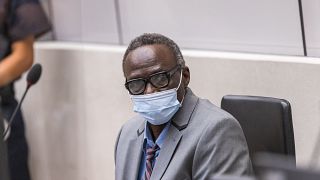
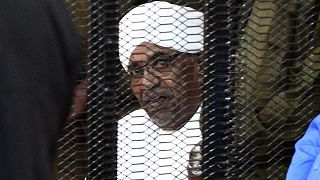

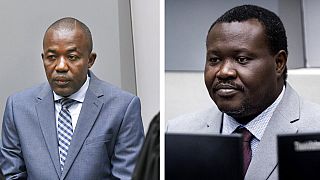
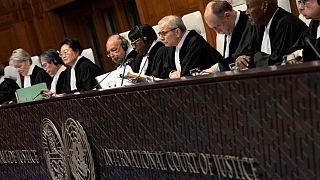
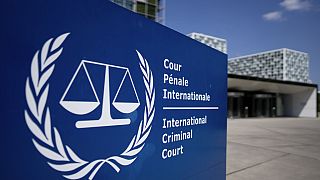



Go to video
USA: McKinsey pays fine for corruption in South Africa
01:03
DRC launches case against Rwanda to the African Court of Human and People's Rights
01:01
Shelter needs among those in humanitarian crisis double in five years
01:52
Aid groups call for more support for Sudanese refugees living in Chad
01:03
Pogba’s brother, 5 others accused of extorting France star go on trial
01:01
Trial set to begin for six accused in Paul Pogba blackmail case